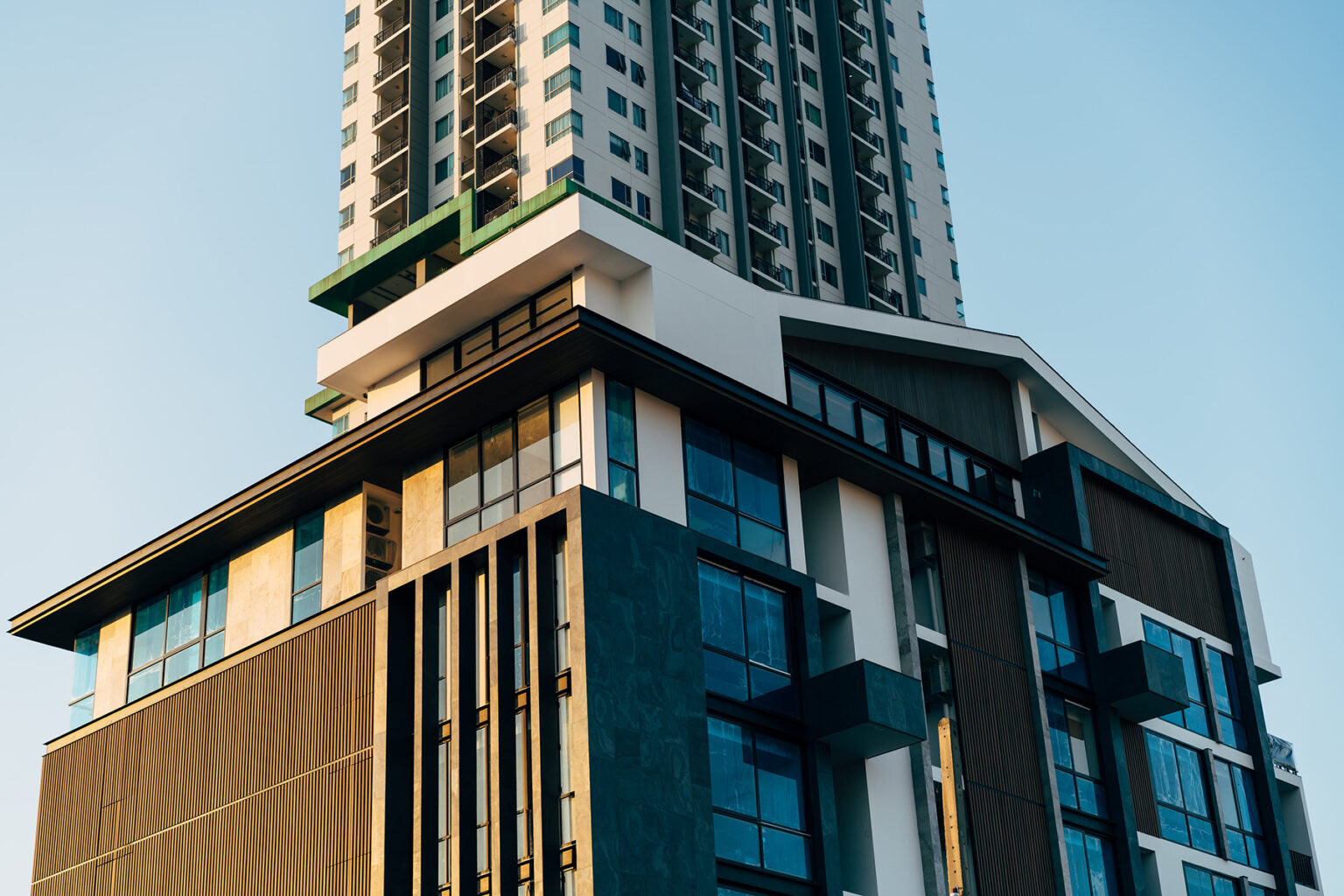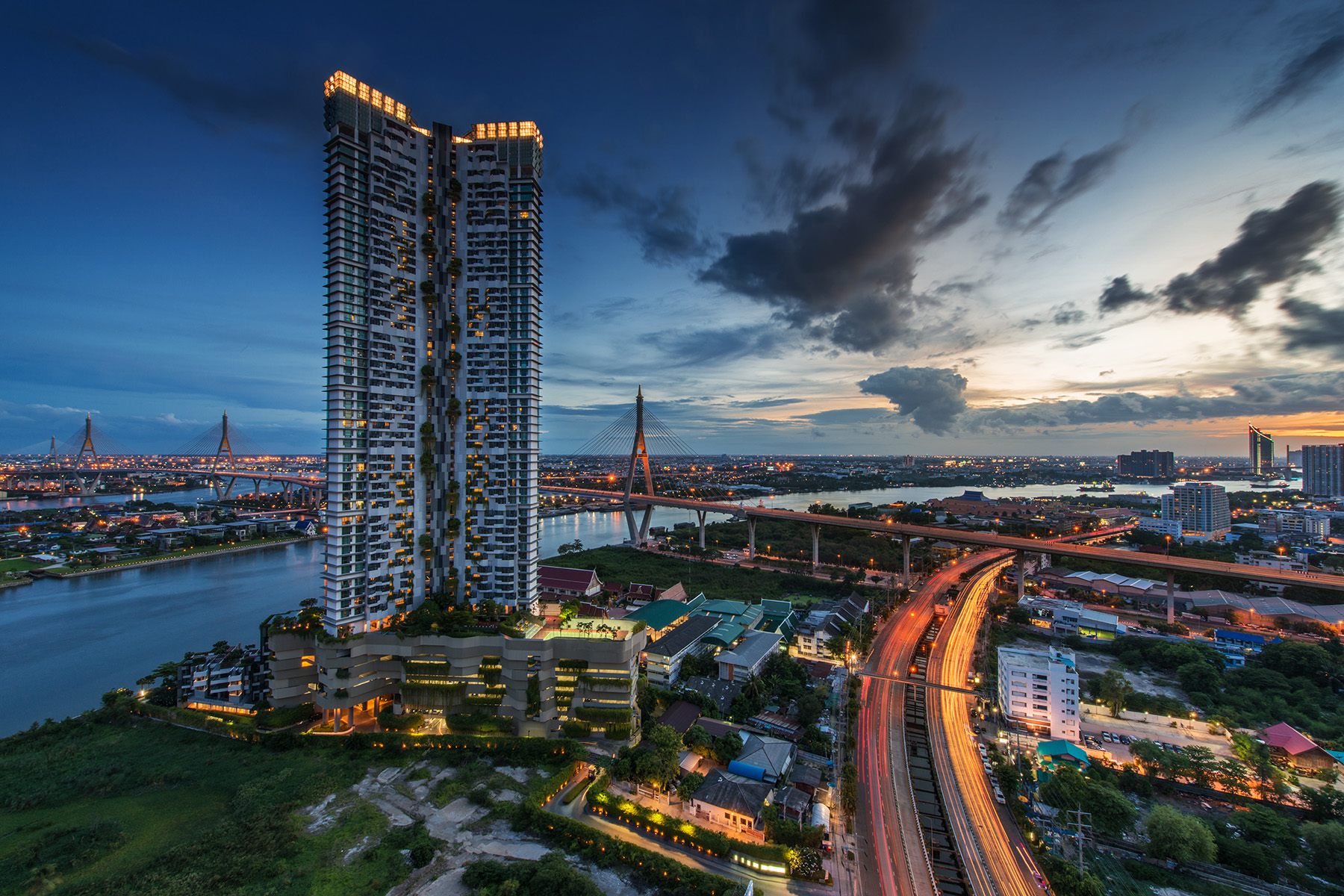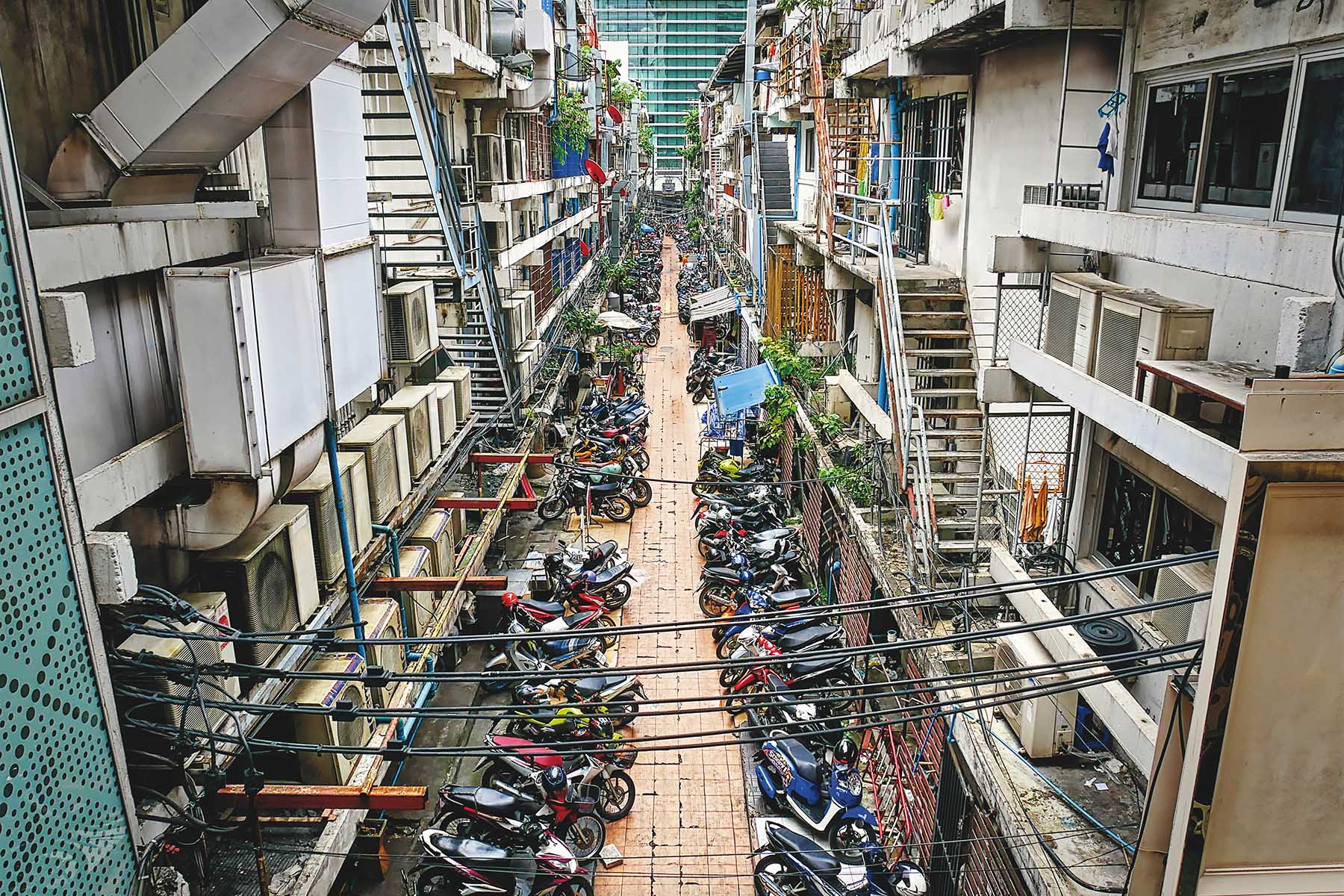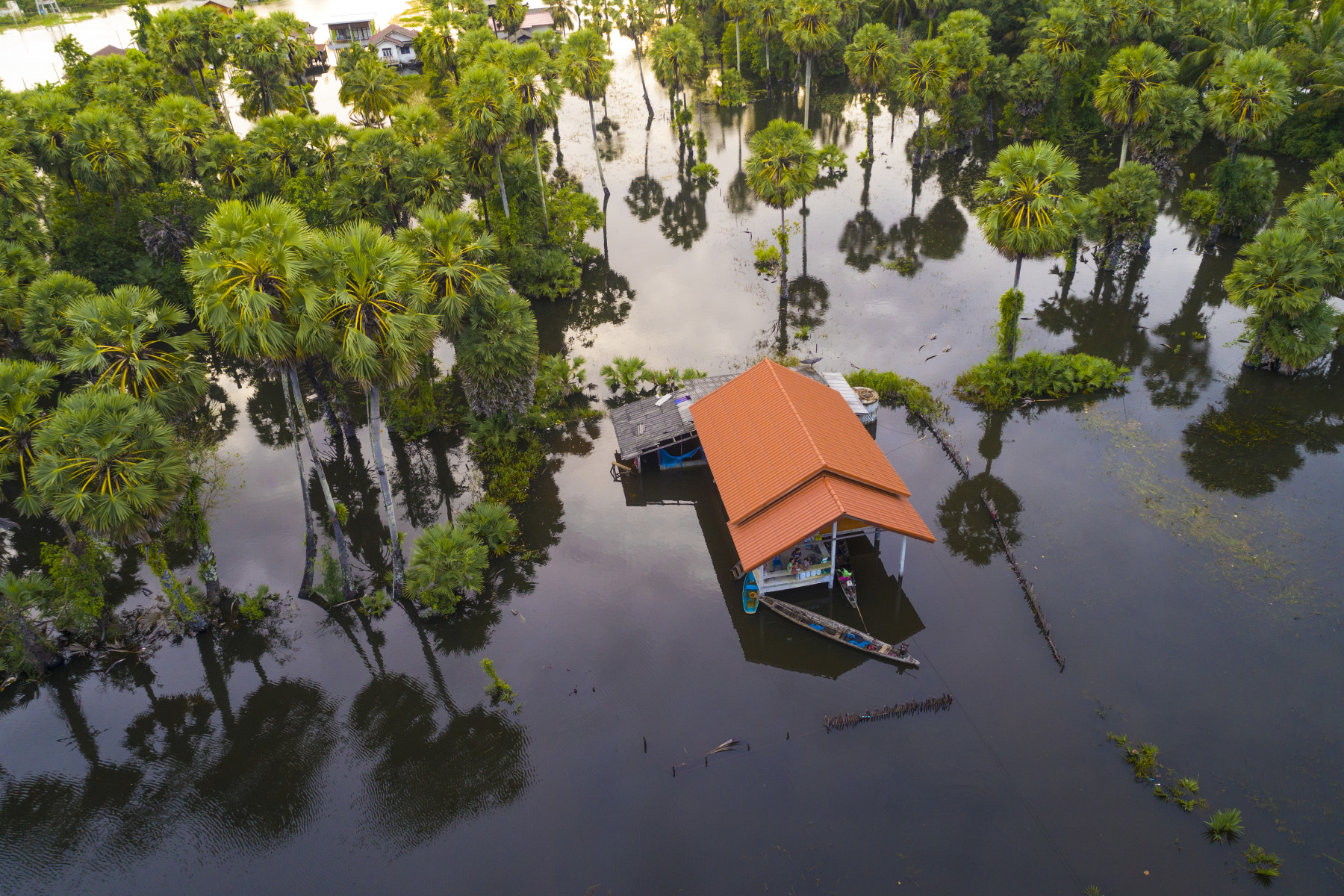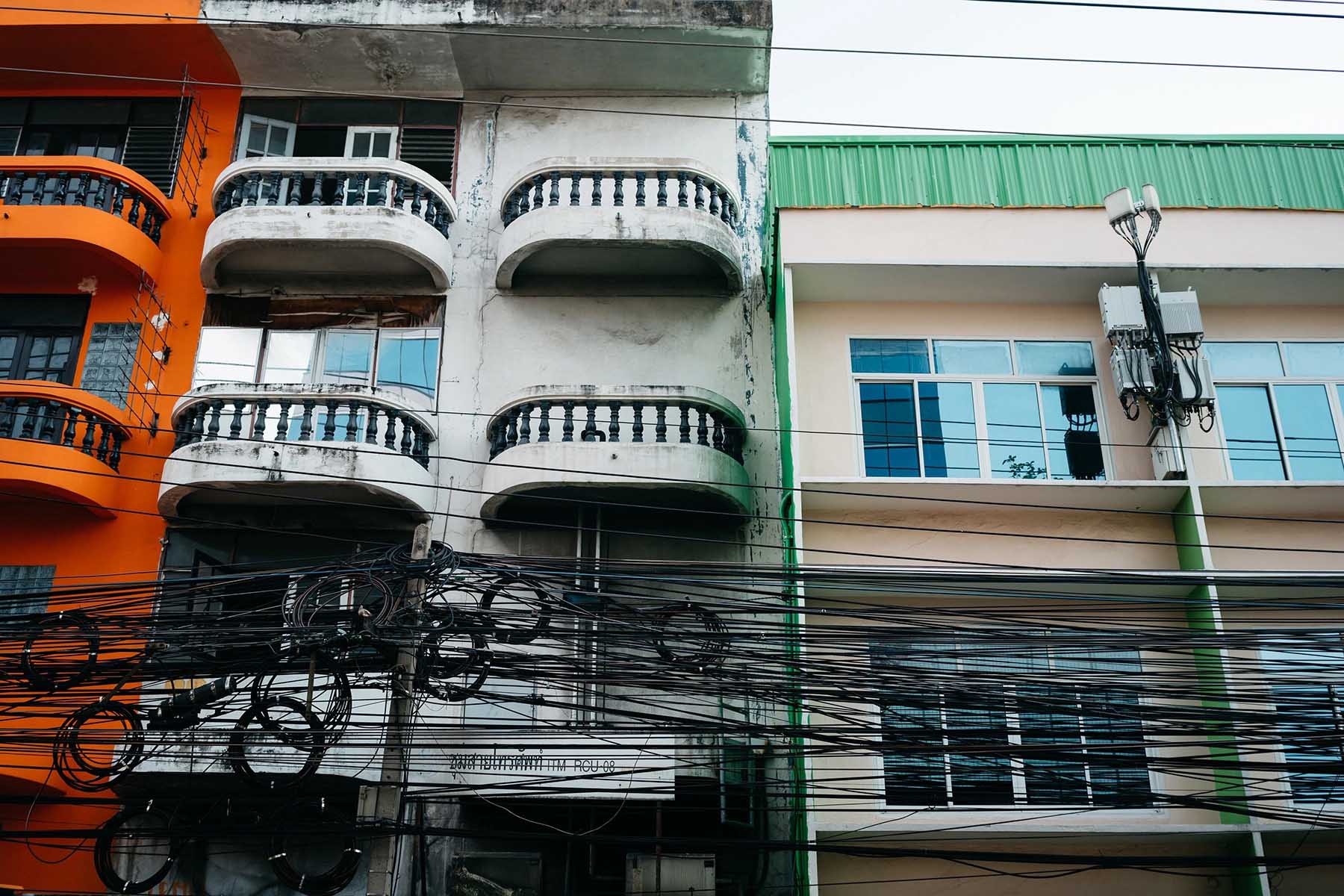Thailand’s beautiful landscapes and bustling cities make it a dream destination for many. With affordable accommodation and a wealth of options, there’s no shortage of dream apartments, houses, and villas to buy.
However, the country does have some strict ownership laws that affect foreign property ownership. Learn what regulations impact you and the type of real estate available below.
Get up to speed on the essentials of Thailand’s property market through the following topics:
- Homeownership and real estate in Thailand
- Should you buy or rent in Thailand?
- Can expats buy real estate in Thailand?
- The Thai real estate market and property prices
- Costs of buying real estate in Thailand
- Financing a real estate purchase in Thailand
- Finding real estate in Thailand
- The process of buying real estate in Thailand
- Moving into your Thai property
- Building a new property in Thailand
- Buying a new-build home in Thailand
- Thai real estate laws on buying housing
- Selling real estate in Thailand
- Tips on buying real estate in Thailand
- Useful resources
Wise
Buying a property abroad is a big step and involves important financial decisions. Wise, an international money transfer company, provides specialist support to help you navigate large international transfers and save on exchange fees. Fill out Wise’s online form today to find out how they can assist you.
Homeownership and real estate in Thailand
The majority of Thais (73%) own their homes. This compares similarly with ownership rates in the European Union (70%) but is lower than other countries in the region, like Vietnam (88.1%) and China (90%). Detached houses are the most commonly owned property, accounting for roughly 72.3% of homes in Thailand.
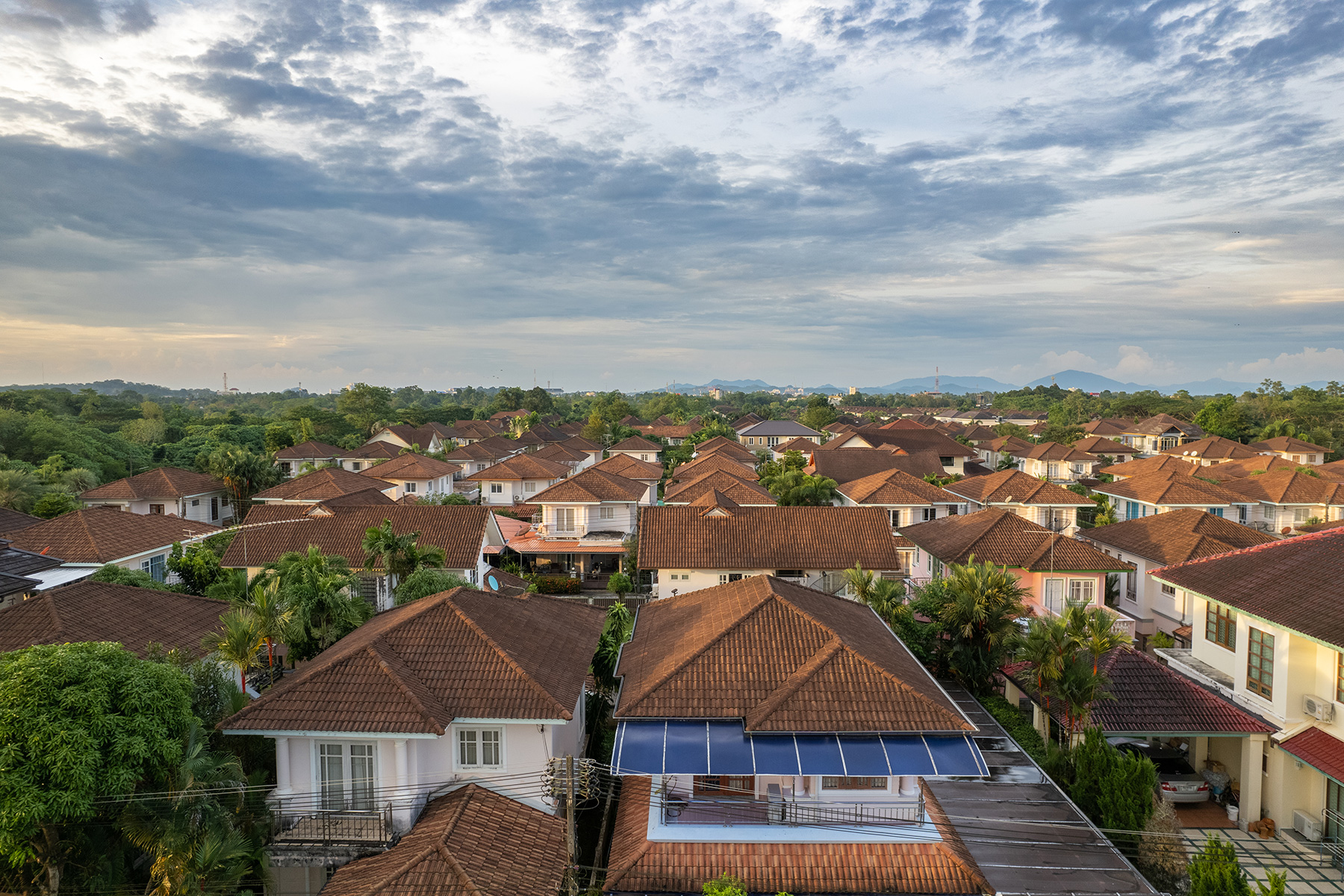
Despite the country’s high ownership rates, just 57% of Thai millennials own their home. This aligns with a general rise in property prices and the cultural norm of staying under one family roof. What’s more, while houses are a national preference, as a foreigner in Thailand, you’re more likely to come across condominiums (อาคารชุด) and apartments (ห้องอยู่อาศัย) in urban areas like Bangkok.
Should you buy or rent in Thailand?
Most new arrivals to Thailand rent their accommodation. This gives them the opportunity to travel the country and discover the best places to live. You may also want to base yourself in a metropolitan area like Bangkok where renting is the norm. Here and in other popular locations, you can find short-term rentals that last from 30 days, enabling you to find your feet in Thailand.
If you are relocating to Thailand for longer, either as a long-term resident or for retirement, you might decide to purchase a property instead. Thailand has many types of housing, from city condominiums to beach-front villas. Before starting your property search, it’s a good idea to familiarize yourself with the laws surrounding foreign home ownership in Thailand.
Can expats buy real estate in Thailand?
Simply put, yes – expats can purchase property in Thailand. However, per the Land Code Act, foreigners cannot own land. This includes permanent residents, but you may buy land if you obtain Thai citizenship.
You may be wondering how this works in practice – how can you own a home but not the land it’s on? Essentially, foreigners have a few options:
Condominiums and apartments
Expats can purchase condominiums and apartments. However, the development must abide by the rules outlined in the Condominium Act (PDF). This allows foreigners to own up to 49% of the unit space within a particular condominium project. As long as Thai nationals own the other 51% of the development, you can freely purchase a condominium. Expats can do this both outright or with a mortgage.
Leasing land
While you cannot own land, you may lease it and own the home built on it. Long-term leases typically last up to 30 years with the option to extend. You can make this option a contractual agreement with two renewals totaling 90 years.

However, there are some downsides to this law. For instance, leases are not fixed assets and cannot be mortgaged or inherited.
Thai limited company
Another common way for expats to purchase property is through a limited company. This will allow you to obtain more complete property rights in Thailand. However, this is a complex process that isn’t viable for everyone. It requires considerable legal knowledge, a legitimate business, and a competent lawyer.
To put it simply, a company must be at least 51% Thai-owned to purchase land under its name. Thailand is cracking down on common misuses of this law, particularly companies that contain “nominee” shareholders with no real connection to a company.
Mixed ownership
If your spouse is a Thai citizen, you can purchase a home together. However, any land owned will belong solely to the Thai partner. This does involve some risks you’ll need to think through. In particular, the foreign partner doesn’t inherit land following divorce or death. As a result, this option is most practical for long-term couples and families with complete trust and shared funds. One potential arrangement is for the Thai partner to own the land while the foreign partner owns the building.
The Thai real estate market and property prices
Thailand’s property market is a tale of two halves. Where residential sales have slowed down locally, foreign investment in condominiums is increasing. This seems to be linked to the prolonged effects of the COVID-19 pandemic and its aftermath. Where the Thai economy and its housing market took a considerable hit in 2020, relaxed measures in 2023 saw investment trickle back into Thailand, particularly from China.
Despite the recent economic setbacks in Thailand and its slow recovery, the property market is predicted to grow. There are more new properties available, and prices are also increasing. However, rising inflation and interest rates are affecting local purchasing power and contributing to a higher number of renters.
Buying property in Bangkok
Bangkok remains one of the most popular cities in Thailand for expats. Not only is it the capital and largest city, but it is home to plenty of international schools, a global community, and a wealth of expat-friendly condominiums. When choosing where to live in Bangkok, you can pick from central business districts like Sathorn and Silom or trendy suburbs like Ari.
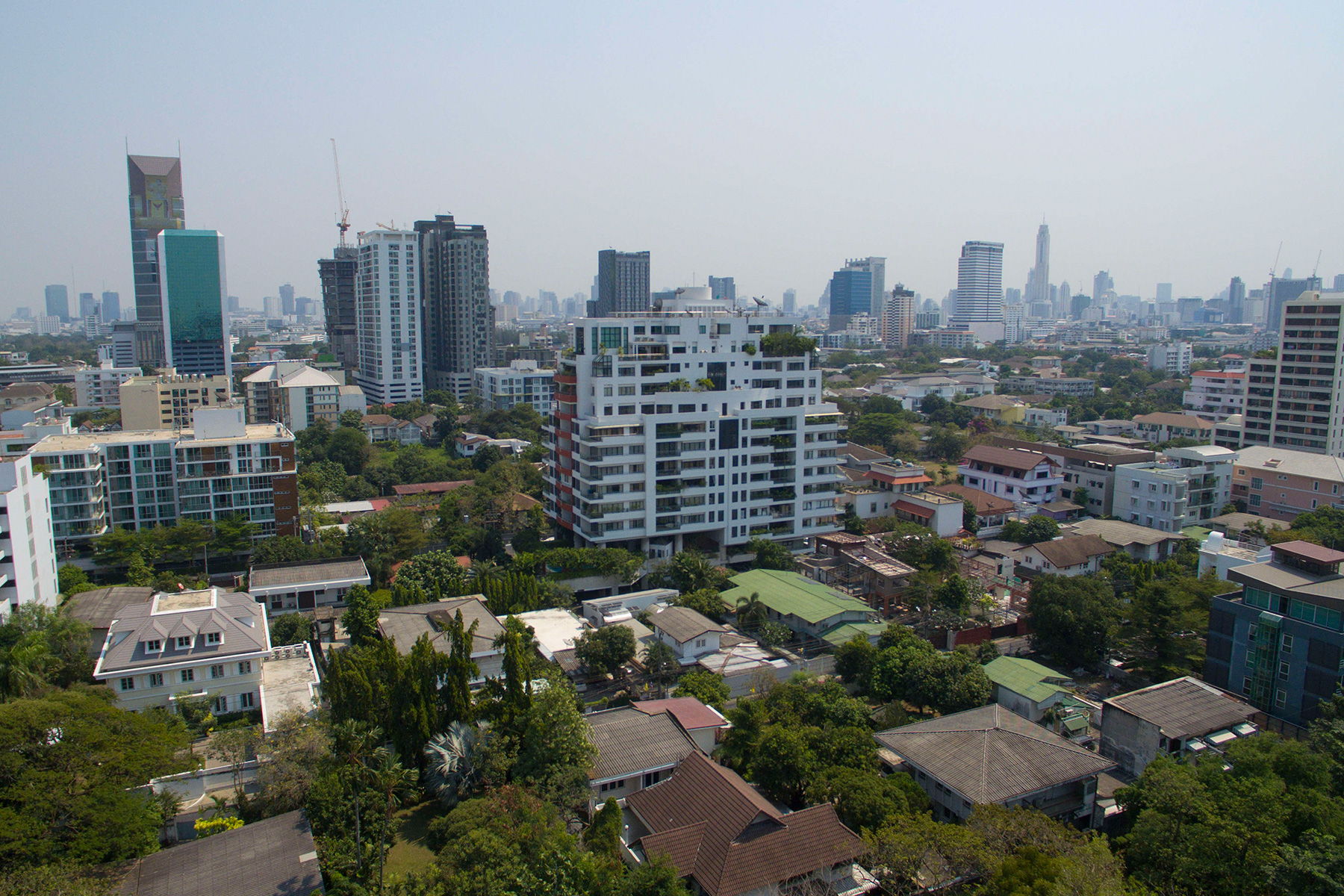
Given the laws of real estate and land ownership in Thailand, the vast majority of expats own or rent condominiums in Bangkok. Aside from the law, there is also a larger stock of apartments than in other parts of Thailand.
Prepare yourself for higher costs in Bangkok, as both real estate and rent are among the most expensive in the country. The city has a number of exclusive realtors for the international market, including 1D and Sense Property.
Buying property in Chiang Mai
Chiang Mai’s scenic nature and calm pace make it a dream for many newcomers. The city combines modern conveniences, like shopping malls and cinemas, with traditional Thai and Buddhist heritage sites. As a result, there is a variety of neighborhoods, from the historic Old City to hip Nimmanhaemin.
Most expats in Chiang Mai rent their accommodation. Condominiums are the only legal option for most foreigners to buy, and there are fewer high-rises than in cities like Bangkok. Still, condominiums are generally cheaper in this city. What’s more, property is more expensive within Chiang Mai’s old city walls, so many expats choose to purchase outside the center, particularly within the Highway 11 ring road.
Buying property in Phuket
Favored for its proximity to the coast and prevalence of big-town amenities, Phuket is also one of Thailand’s oldest cities. Condominium developments have boomed in the city center and along its coast, making it both affordable and attractive to expats. While many choose to live within Phuket city itself, you’ll find expat-friendly developments across the island, including areas like Rawai and Karon.
While the property is cheaper in Phuket than in Bangkok, there is no absence of luxury developments. Interestingly, average rental prices for houses and condos can be more expensive in Phuket than in Bangkok. This makes the area particularly popular for buy-to-let investments and holiday rentals.
Costs of buying real estate in Thailand
Purchasing property in Thailand involves additional fees on top of property value. However, these are generally far lower than in many other countries. For instance, there are no notary fees. What’s more, most agent fees and taxes are paid by the seller, not the buyer. Instead, you should consider the following:
- Transfer fee: 2% of the property value.
- Stamp duty: differs and can be negotiated as part of the sale. However, the seller pays the 0.5% value tax. If a property is sold within five years of ownership, the seller pays a special business tax of 3.3% instead.
- Legal fees: these are negotiable and depend on your chosen practice. However, you can generally expect to pay between ฿20,000 and ฿30,000.
- Property tax: an annual tax on land ownership.
- Maintenance fees: this regular fee affects condominium or apartment owners. Costs differ greatly depending on the property, with luxury apartments racking up the highest fees.
Financing a real estate purchase in Thailand
Mortgages
Thailand offers both fixed-rate and variable-rate mortgages. While local Thai banks are traditionally reluctant to lend to most foreigners, they’ve been more lenient in recent years.
Newcomers looking for a mortgage should try an international bank with offices in Thailand, such as UOB, ICBC, and HSBC. You may also be able to secure an overseas loan from a bank in your home country.
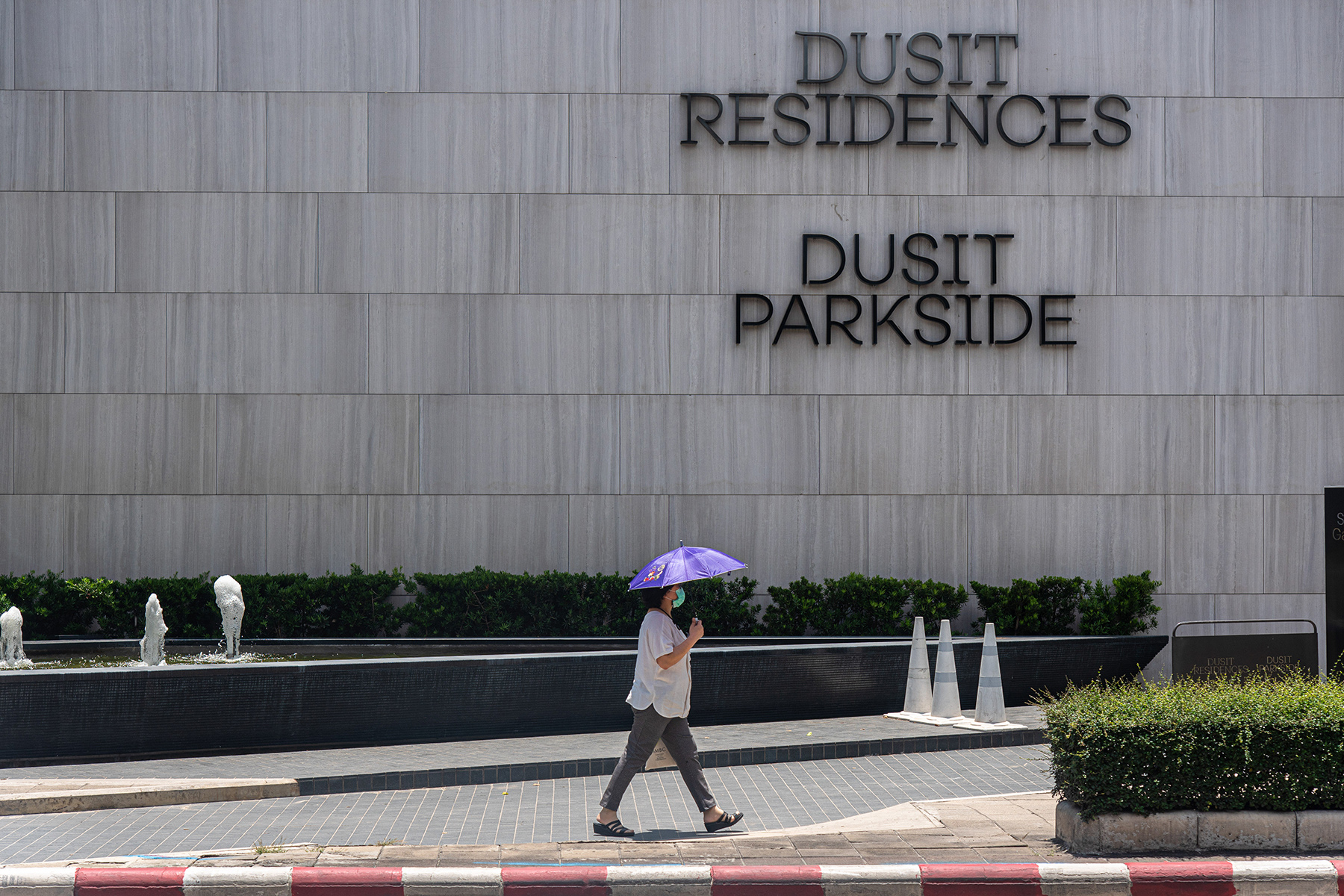
Thai banks may be more willing to lend to you if you meet the following criteria:
- You hold permanent residency in Thailand
- You have lived and worked in Thailand for at least one year
- You hold a permanent occupation in Thailand
- Your income exceeds three times each installment repayment
- Your age plus loan tenure doesn’t exceed 60 years
- You have a good credit rating
- You have a Thai spouse
It is worth noting that agreed Loan-to-Value (LTV) ratios are generally lower in Thailand. While you can borrow up to 70% of your real estate’s value in Thailand, the norm is closer to 50%. You can work out any expected costs by using a mortgage calculator.
Assistance schemes
Thailand has made great strides in providing assistance programs for low and middle-income homebuyers in Thailand. However, these are not available to foreigners. Schemes include:
- National Housing Authority (NHA): Thailand’s social housing program has seen new towns and developments with low mortgages of ฿3,600 per month.
- Tax incentives: Thailand’s government issues tax benefits for first-time buyers purchasing property worth up to ฿5,000,000.
Finding real estate in Thailand
Finding your perfect property in Thailand can be challenging. With so many developments and restrictions on expat ownership, you have to decide on your legal pathway before purchasing. Do you want a hassle-free condominium? Or do you want a dream home with a 90-year lease?
It all starts with an internet search. Luckily, there are plenty of reputable property portals to browse online. You can kick off your property search on one of these well-known sites:
Property agents
You can make your property search a little easier by enlisting the help of a real estate agent. They can save you time by suggesting homes based on your criteria, and many have years of experience advertising property to internationals.
However, there is no regulation or training for property agents in Thailand, so there is a wide variety, from freelancers to commission and salary-based employees. It pays to be diligent in choosing a company that showcases experience and testimonials.
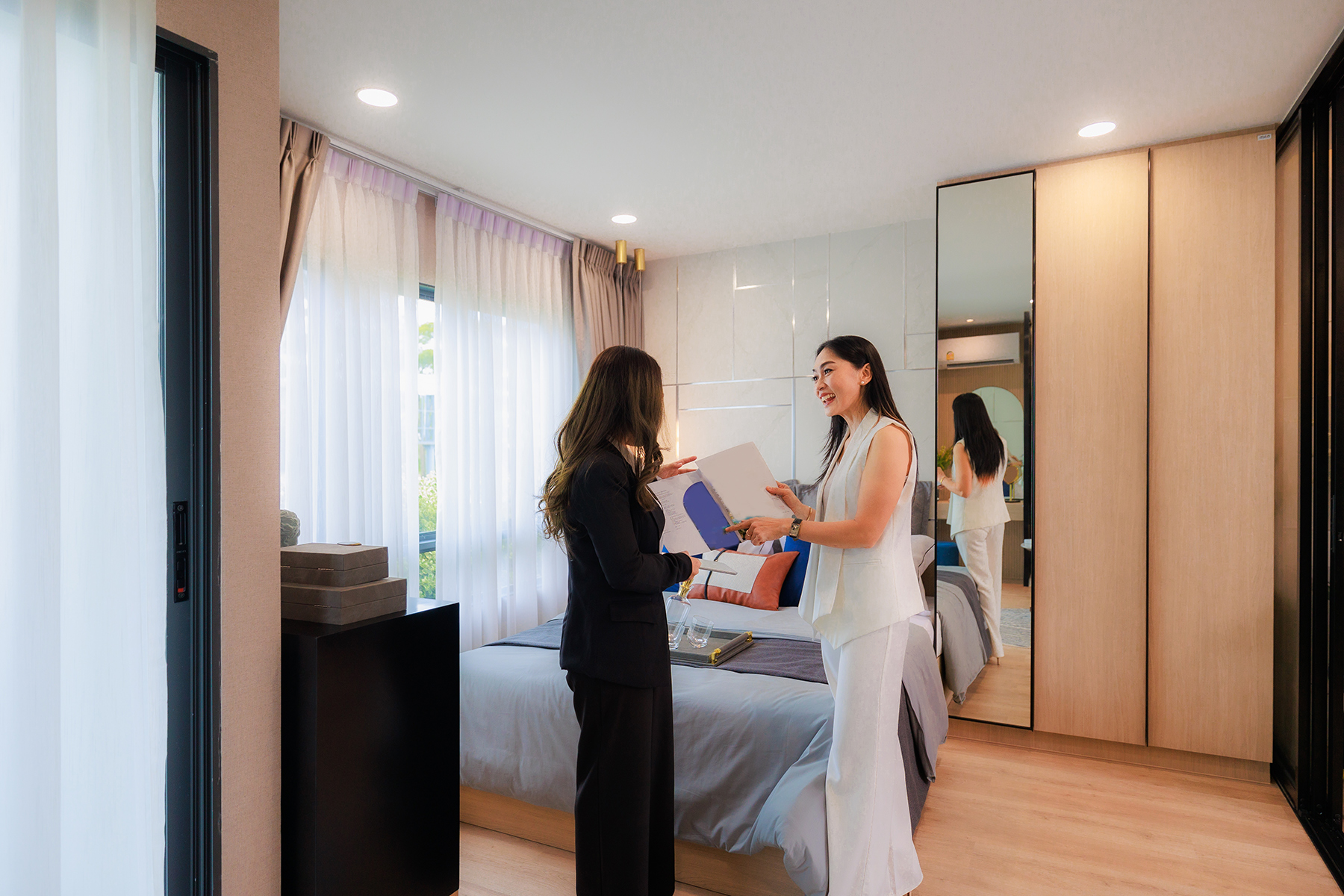
You don’t have to stick to one agent; you can shop around and sign up for multiple realtors to access the widest pool of properties.
Some popular and professional realtors include:
- Sense Property Group
- Siam Real Estate
- Manora Property
- Knight Frank
- CBRE
- Bangkok Property
- Isan Real Estate
Viewing and choosing a property
Once you’ve found a property you like through a portal or realtor, get in touch with the listed agent or owner to organize a viewing. If you have an agent, they will likely schedule several viewings in one day. It’s a good idea to take your time to check properties thoroughly during each of these visits.
You can take a checklist of personal preferences when viewing and assessing a property. Try to record the details of the property’s condition, paying attention to plumbing and electrics. You can also enquire about the reasons for selling and the property’s ownership history.
The process of buying real estate in Thailand
Buying a property in Thailand is fairly straightforward, but you have to pass some legal checks to ensure a smooth transaction. The whole process can be completed in a matter of weeks or months, depending on the complexity. Here’s the process in a nutshell:
Making an offer
You can make an offer through your chosen property agent. They can usually help you negotiate a price the seller will accept. Sellers may be more open to a percentage reduction rather than an actual price.
What’s more, as taxes and fees are negotiated between the buyer and seller in Thailand, you may be able to leverage out of paying these based on your offer.
Hiring a lawyer
It’s a good idea to appoint an attorney early on. They will carry out a full title search and due diligence. Realtors can generally point you to an appropriate firm.
Paying the deposit
Once you’ve reached an agreement and initial checks have been made, you can pay a deposit of about 10% of the property’s value to reserve it. Never place a deposit before this stage.
Wise has a specialist team to help move large transfers abroad and can save you money on exchange fees.
Arranging a survey
While not a requirement, you may want to conduct a building survey. It’s a good idea to research surveyors – many in Thailand are registered with bodies such as the British Royal Institution of Chartered Surveyors (RICS).
Exchanging contracts
The seller and their lawyer will provide a property contract, which you should go through carefully. Make sure to get a good translation if necessary so you fully understand the terms and conditions.
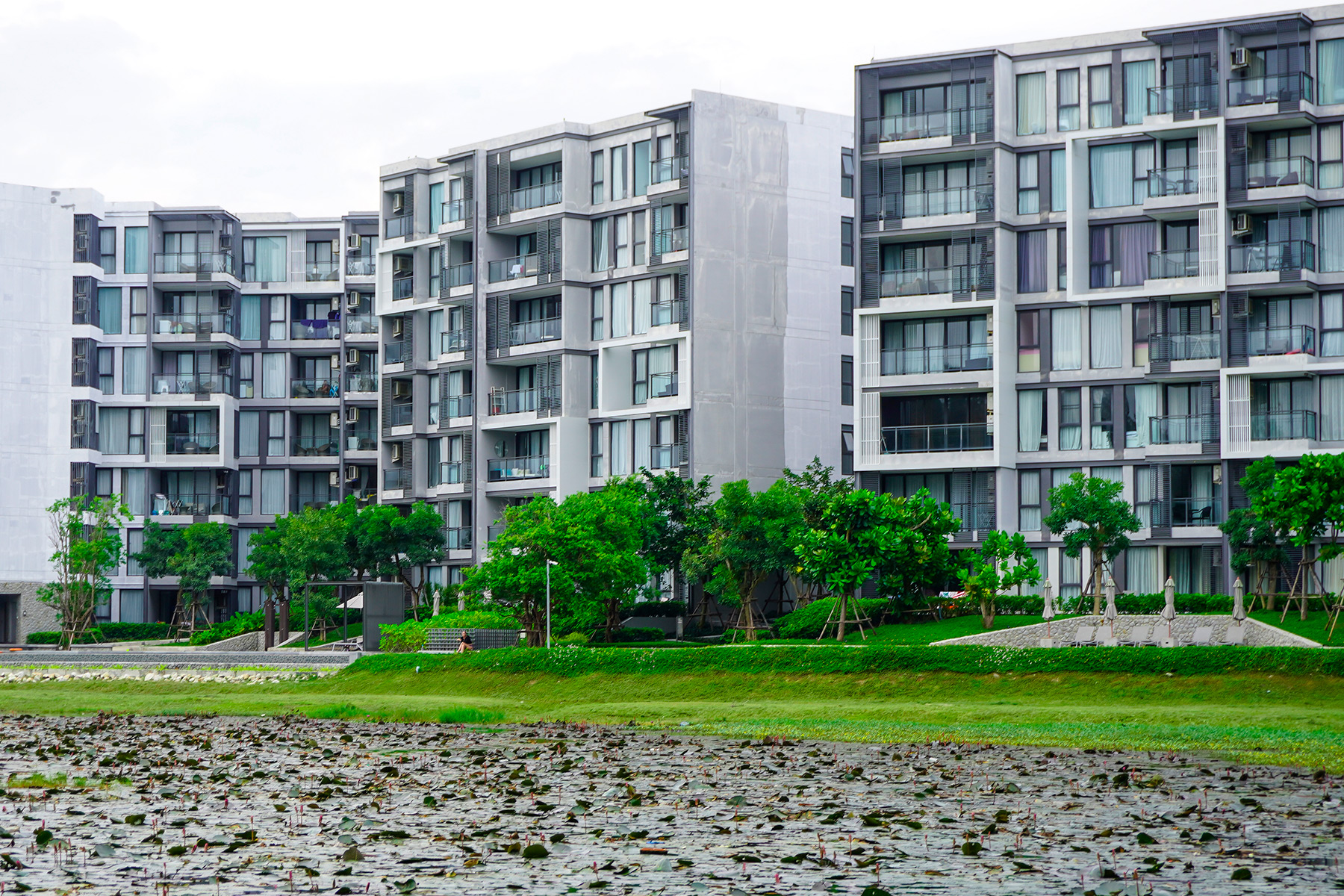
This is a legally binding document that outlines the conditions of sale.
Completing the sale
It usually takes several weeks to complete the sale. Your agent and lawyer will help you throughout this process.
Final arrangements
You’ll collect your keys on move-in day. Any bills and taxes should be applicable from this day on.
Moving into your Thai property
Insurance
Although not a legal requirement in Thailand, it is worth getting insurance for your property. Building insurance is necessary to protect your home from natural damage, including fires, storms, or burst water pipes. Bear in mind that if you buy a condominium, your management fees should include general building insurance that covers you for these eventualities.
Insuring the contents of your home will protect them from theft or damage. You can also take out additional insurance for personal effects, like laptops and mobile phones, for protection outside the home. There’s no obligation to use a particular home insurer in Thailand, but many choose to go through their local bank.
Utilities and telecommunications
Homeowners are responsible for organizing their utilities. Energy and water are managed through the Electricity Generating Authority of Thailand, the Provincial Waterworks Authority, and the Metropolitan Waterworks Authority.
As a result, all households receive regular bills in the post. You can pay through your condominium’s reception, a bank, or a convenience store. Some payments can be made online, depending on your location.
You have more choices when it comes to telecommunications. Popular national internet providers include True, 3BB, and TOT, but plenty of smaller companies offer quick mobile internet and other add-ons. You can also combine your internet service with your cable or digital TV package. Of these, TrueVisions is the largest Thai provider.
Building a new property in Thailand
As outlined earlier, there are restrictions on who can own land in Thailand. So, if you want to build a new property, you’ll need to do one of the following:
- Lease land
- Own a Thai company
- Become a naturalized citizen

All regions of Thailand enact their own regulations that affect how and where you can build homes. These may include restrictions on beach proximity and height.
As long as you tick the necessary boxes, you can begin building your dream home with a permit from the Land Department Office (DOL – กรมที่ดิน).
On the whole, traditional methods and layouts are more affordable in Thailand than customized luxury properties. However, remember that floor measurements are commonly made in the Thai measurements tarang wa (ตารางวา), ngan (งาน), and rai (ไร่) rather than square meters or feet.
Buying a new-build home in Thailand
Thousands of new homes are built and purchased in Thailand each year. The process of buying one of these is similar to any other building. However, you are likely to pay a larger deposit to secure this new development. New-build condominiums are particularly attractive to expats and foreign investors as they are subject to fewer restrictions.
Given the wide range of new real estate companies operating in Thailand, it’s important to fully research the developer before taking further steps.
Thai real estate laws on buying housing
Aside from Thailand’s strict laws on land ownership, there are other regulations that you should be aware of. Second homes are subject to an additional tax in Thailand. However, this rate is fairly low, at 0.02% for properties under ฿50 million. Buy-to-let properties are considered second homes under this law.
If you’re purchasing a property to rent, be aware that there are fewer regulations on renting in Thailand than you may be used to. The same laws that apply to property and land ownership apply to landlords. For instance, it is possible for foreigners to own condominiums and rent those out, but they are subject to the 49/51 ownership rule.
Selling real estate in Thailand
Most properties are sold through agencies in Thailand. While it’s possible to sell your home independently, you’ll lose access to a realtor’s wide advertising network. Remember to research the company’s credentials before submitting.
When selling a property in Thailand, you should calculate the predicted costs involved beforehand. These include transfer fees, stamp duty, and withholding tax. You can negotiate who is responsible for paying this with your agent, but the legal responsibility is typically with the seller. You can include these costs in your listing price. The standard rate of commission when selling a property in Thailand is 3%.
Tips on buying real estate in Thailand
- Research your chosen area in Thailand before purchasing.
- Consider renting before buying to get a feel for the area.
- Get to know the market before making a purchase.
- Thoroughly research your mortgage options to ensure a local bank will lend.
- Familiarize yourself with Thai property law to ensure your purchase is legal.
- Consider the benefits of permanent residency for purchasing a property.
- Don’t fall for the top 10 mistakes made when buying a house abroad.
Useful resources
- DOL – Thai body in charge of recording land deeds
- NSO – Thailand property and population statistics
- DD Property – the most popular property portal in Thailand
